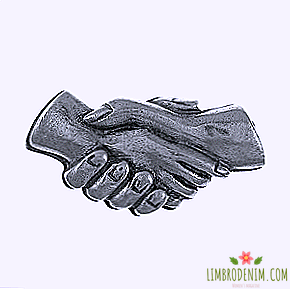“It's easier for you to die”: How I became homeless
Homeless people are still surrounded by many stereotypes: It is believed that only people from “disadvantaged” families can live on the street, who have made the “wrong choice” and have failed to overcome addiction - and therefore they “deserve” everything that happens to them. In fact, everything is much more complicated, and on the street can be absolutely anyone, regardless of age, social status, education and other formal features. In honor of the Espress Assistance charity event held on May 19, aimed at supporting the homeless, which came up with the organization Nochlezhka, we talked with Ilona, who had lived on the street for a long time - about how this happened and what helped her survive.

Without love
I was born and raised in St. Petersburg, in a professorial family. Relationships were complex: houses had strict morals. My relationship with my mother (she was an academician) did not develop since childhood - now, because of my age, I understand her, but earlier it was very hard for me. I had health problems, and my mother showed in every possible way that she did not need me and I was dishonoring her.
My life was tightly connected with the street from the age of fifteen. The first time I left home as a teenager was due to dislike and misunderstanding in the family. One day, my mother, apparently already not knowing how to deal with me, said: "Either you leave, or I will send you to a mental hospital." I understood that she would not let me live at home and would really send me to the hospital — she already did that. Mom always thought that my problems lay in the field of psychiatry, and not in how life was going on. She did not notice that she simply did not understand me.
Naturally, I wanted to assert myself, wanted to be understood - and I found such people on the street. We went to the basements, listened to music, consumed substances and alcohol. At that age, the decision to leave was easy: it seemed to me that I knew what I was doing, that I was acting absolutely correctly. I did not understand why my mother keeps me to herself, why follow any rules, if you can not do this, and you will be respected. It was very painful - but the pain subsided when I communicated with people or used substances.
I think that when I was evicted from an apartment, I could still be helped, but I had no one to turn to. I was already completely alone
I got married very early - I was eighteen years old. I understood that I had nowhere to live, but it was unrealistic to remain on the street, so I did it. We lived in his house, I continued to walk - my husband loved me and therefore suffered. From the age of fifteen, I underwent a lot of operations. It seemed to me that if there was nowhere to go, it was better to stay with my husband, although I didn’t love him — it was at least some kind of support. I tried to talk with my mother, but I never managed to communicate with her. Then I started using heavier substances, because it became really bad: there is no love in the family, bad relations with my mother, there is no place to go, it is scary. I found solace in drugs: it seemed to me that it could "cure." It must have been from fear.
In 1999, my mother died. She left all the inheritance to my younger brother, he was then four years old. A stepfather arrived in Russia (he and his mother lived in America) and sold all the apartments (mother was a very wealthy woman) - the last in 2007. This man raised me for many years, it seemed to me that he would never betray me, but my stepfather threw me out into the street with a light heart. In 2007, I became homeless. I think that when I was evicted from an apartment, I could still be helped, but I had no one to turn to. I was already quite alone.
At that moment, I again turned up a man, whom I married a second time - and again only for the sake of housing. I used drugs, he, too, and I began to realize that this was not life - I would die there. At this time, I had an operation - they removed the gallbladder. So that I did not die (or did not die with them), I was sent from the Gatchina hospital to St. Petersburg. My husband changed me, and I understood that it was not an option to return to him: in this state I did not want to sort things out, I wanted to get somewhere and die. As a result, my aunt sheltered me, but later drove me out into the street for consumption. So I finally turned out to be homeless.
People despair
I spent the night on the stairs, train stations. I remember it - cold to the pain, and you can not do anything with it. Stayed in unfinished houses, where a bunch of homeless, typing blankets and warm coats. In winter (if you come on time and not all places are occupied), you could get into the state shelter. For the homeless, this is a five star hotel. The renovated building is given dry rations, bed linen is changed every ten days, there are beds, bedside tables, wardrobes. There are social workers who will tell you what to do and where to go - but you should do everything yourself. They have everything they need: refrigerators, tables, books, televisions, computers, psychologists, and legal assistance. You just need to use it - go if the workers send you somewhere. Many are satisfied with life in a night shelter, they live there for a long time and still have their rights pumped. To get into such a doss house is easy, but you need to make an effort - for example, to go through several doctors. Many do not know what awaits them, and they are afraid that they will be deceived again.
Homeless people could only be washed in one place - at the disinfection station of St. Petersburg, where they could take free things. "Night shelter" fed - they brought food to certain points of the city. The only serious problem turned out to be my health - it was hard to walk long distances to eat, so we tried to pile around the places where food was distributed. Someone just asked for money - usually for medicines, but also for consumption, of course. Stolen in stores. At some point in my life on the street, I already had such an appearance that they would not let me go anywhere, so I still could not steal.

No one is born "dysfunctional." People entering the street become "disadvantaged" due to circumstances. Many of my peers are confronted with housing fraud or substance use. For example, the family with which we lived - a woman and her son - are absolutely ordinary people. Time after time they go to the city administration, they are trying to knock out at least temporary housing for themselves, they want to be put on the waiting list, but they are not put on, because they have no benefits. From despair they begin to use something, act dishonestly - the boy, for example, pays attention to girls with housing. People despair.
There are also those who have sold housing: a person is left alone in an apartment and because of loneliness begins to consume alcohol or some kind of substance - naturally, there are people who are not dishonorable. Still a lot of nonresident. In a big city is easier than in a small city - they are offered to return home, but this is not an option for them at all.
A teacher of philosophy at my institute says that people who have led an asocial lifestyle for three years cannot fully adapt to society. This is partly the case. Unfortunately, we have very few people who can explain on their own experience how to act, what to do next. People who get into city dormitories thanks to social services, start from the fear that they might end up on the street again, torture social workers - swing their rights, say: "You owe me". The feeling of gratitude fades away - they are afraid to shiver that they will be thrown out again and they will return to their former life.
There is an opinion that all homeless people are “drunkards and outcasts”, while other people do not enter the streets. Those who are all right, do not even suspect that they may be in the same situation. Life is so unpredictable.
How did I feel about myself at this time? No It hurt all the time. And it makes absolutely no difference how people react to me, what is happening around. I had a goal - for example, to get to the "trough", and the rest did not bother me. It was as if I did not exist. It was life in constant pain and fear. At first there was some kind of disgust for myself, but it passed very quickly - everything seemed to be the norm.

Who are you?
Once I broke my arm, I had to do several operations. As a result, I was on the street at minus twenty with the Ilizarov apparatus - and somehow I survived. I can not imagine how - there was violence, and much more. Social workers tried to deal with me, but they didn’t succeed, because I practically didn’t speak - there was no need to talk at all.
People from the street to get medical care is very difficult, almost impossible. Even if you have a policy, you are treated with disgust, with disdain. When I needed to install the Ilizarov apparatus (my hand was rotting and I could lose it), it turned out that I did not have the right to highly qualified medical assistance, and it was only due to my character that I reached the Ministry of Health. I am very sorry for those who can not do this - they lose their arms and legs.
The medical staff basically behaved badly. There was a lot of humiliation. In order to move into a state doss house, it was necessary to do a fluorography, it takes two days. I came to the head of the polyclinic and promised that I would stay overnight because I would not be allowed anywhere without fluorography. I have a punchy character.
Homeless people take drugs from pain - pain, of course, terrible. Unfortunately, homeless people are rotting alive, and no one understands that.
I also remember how once I was in a hospital specializing in the treatment of purulent diseases - there is a separate department for the homeless and drug addicts. I had a hand burn, and they even refused me painkillers. Medicines were bought to me by a housemate in the ward, and the doctors said: “Listen, is it easier for you to die, that you are soaring at all?” It hurt a lot to me, I remembered the dressing room for the rest of my life. With a temperature of forty I was discharged into the street, they said that I myself was to blame for my troubles. I said: "Where will I go? I will die on the street." They answered me: “We can’t hold you anymore, we don’t have enough beds. Goodbye!” If it were not for the social workers of one of the night shelters where I found the drugs, I would have died.
One day the bus driver opened the door on the go, and I fell out of it. Cars stopped nearby, people were ready to confirm that the bus driver was to blame, not me. The ambulance arrived, they pushed me into the car and said: "Listen, you had better close your mouth altogether. What charges could there be towards the driver? Who are you?"
I was thrown out of the hospital. If I got overdose, they simply drove me away — even though I explained that I could not walk. When a person is homeless, no arguments are valid. Only thanks to social services I could at least receive medical care somewhere. Homeless people take drugs from pain - pain, of course, terrible. Unfortunately, the homeless are rotting alive, and no one understands this. It’s generally very difficult to work with them - some have no motivation to live at all.
The maximum tapping on the head
Once I was raped and thrown into the dustbin, taking away all the documents. I arrived at the “Doom” - they helped me recover the passport, paid the fee. With the Ilizarov apparatus it was very painful - but they found medicines and bandaging me. There I realized that you can live. I am very grateful to them. I had no other options: I needed money, and where would I get it?
When there is no passport, there are problems with medical and social assistance - more loss of documents for a homeless person is in principle not dangerous. It’s still impossible to eat: they feed, give clothes, medicines in city centers, but you need a passport. Most homeless people do not use virtually any social services - they cannot receive either a pension or a disability allowance. And the rest without a passport may be even more convenient, because no one can bring you to justice. Whatever happens, the maximum you can knock on the head.
Returning to normal life turned out to be easier than I thought. I took up the state service for working with persons with no fixed abode. I was assigned to a state dock, but I left and constantly used it there. As a result, I was almost forcibly taken to the city drug treatment hospital - I almost could not walk from hunger. It was surprising that, it turns out, you can get support, understanding and participation just like that - for me at forty years this was a revelation. Thanks to the consultants and the rehabilitation manager, I started working in the department, where I myself lay. Six months later, I returned to the state dock and continued to work.

After another half a year of sober life, I went to college - again, thanks to the consultants. I myself would never have dared to do that at forty. Since I am a “person with no definite place of residence” and I know how to properly communicate with government services, I did not see any other way than to enter the specialty “psychology and social work”. The most valuable thing I have in my life is my experience. The experience of how to stop using drugs, what it is like when you are not loved and do not understand, the experience of working with violence, with psychological trauma. I know how to be all alone.
I was helped to register a disability. I work, get a pension and now I can pay for tuition; I was discounted as a person with a disability. Through the district administration, I received a room for eleven months, where I now live. I use help for people with disabilities - it helps me a lot that I can play sports, go to the pool, get food rations. Through acquaintances from the community of anonymous drug addicts, I found another job - caring for children and seriously ill grandmothers.
I am pleased to continue working as a volunteer at the state drug treatment hospital. In the future I want to get a bet there - for this you need a higher education. This will give more opportunities to help patients. Now I mostly support them morally, whenever possible I communicate with “Nochlezhka”, I help to recover documents, suggest how to get a job. I see how the guys begin to live a different life: they get a job, take the children out of care. This is cool, and in this I found today the meaning of life for myself.
Two years and nine months have passed since I stopped living on the street. I do not build special plans - for now I'm afraid to plan. Another very strong fear is to return to what was. I enjoy the life that I have now. About what happened to me, I, of course, tell others. If you do not share the experience, he can "eat" you. Therefore, the city drug treatment hospital is my salvation: I share my experience there, and it benefits many people. Probably, there are no such situations with which I would not have to face "beyond the line", therefore my experience is valuable. It is always cool to share them - people no longer disdain themselves, consider themselves guilty, begin to perceive their addiction as a disease, but are responsible for their actions.
Illustrations: Anna Sarukhanova





